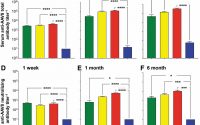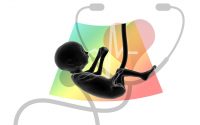Diagnosis of glioblastoma: How brain tumors are treated today?
Glioblastoma is a malignant brain tumor that often grows very quickly and as a particularly aggressive applies. Usually the first symptoms, such as headache, dizziness, blurred vision, or paralysis lie between the appearance of symptoms and the diagnosis only a few weeks or months. The therapy must begin quickly. The person and their family can on this topic on 16 July by Doctors at free reader phone advice.
Call!
Thursday. 16. July 2020 from 16 to 19 PM 0800 – 060 4000
The call is out to all German networks free of charge.
Because of the aggressive tumor growth, a rapid diagnosis with a glioblastoma is crucial. A magnetic resonance imaging – short &ndash MRI; shows exactly where the Tumor is, how good he can be surgically removed and how far it has spread, evident in the surrounding tissue. During the Operation, it is important to remove the Tumor as completely as possible. After that, a combination of radiation and chemotherapy follows another tumor stem growth, both locally and with medication or to stop. The chemotherapy is continued as a maintenance therapy over the end of the radiation therapy continue to.
Spectrum of therapies for Glioblastoma advanced
A further method of treatment for patients with glioblastoma are Tumor Treating Fields – short TTFields. A portable device generates electrical alternating fields of low intensity, which can slow down tumor cell division or stop. In General, the treatment is radiation following the surgery and chemotherapy used together with the maintenance chemotherapy. It can be carried out by the patients on an outpatient basis at home. In March of this year, the Federal Joint Committee (G-BA) has decided to TTFields as a first-line therapy in addition to the current standard of treatment in the benefit catalogue of the Statutory health insurance record.
What comes up to me after the diagnosis? How does the application of TTFields? Where can I find support of the disease management? What can I do as a pair? All questions about the treatment of Glioblastoma experts, answer on Thursday, 16. July, between 16 and 19 o’clock on free reader phone:
On the phone 0800 – 060 4000
- Johannes Hoffmann; A specialist in Internal medicine, Hematology and medical Oncology, senior physician at the clinic for Hematology and Oncology, Pius-Hospital Oldenburg – Medical Campus University Of Oldenburg, Germany
- Prof. Dr. med. Florian Stockhammer; Specialist in neurosurgery, chief physician of the clinic for neurosurgery, Städtisches Klinikum Dresden
- Prof. Dr. med. Niklas Thon; Treatment areas of neuro-Oncology, micro surgery, Stereotactic neuro-Oncology, vascular neurosurgery, Senior physician, Neurosurgical clinic and polyclinic, University hospital, Campus Großhadern, Ludwig-Maximilians-University of Munich
NK
An Overview of all the messages you get on aponet.de current.


